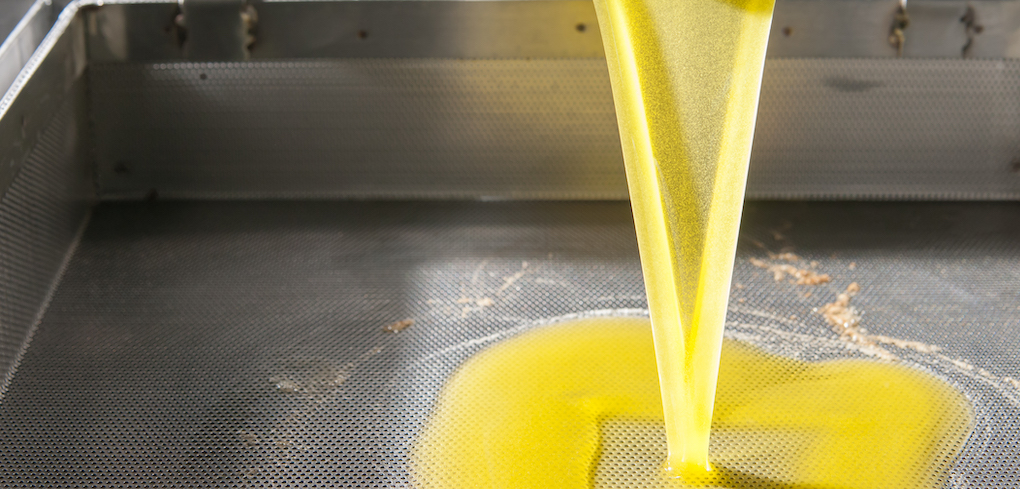
There are a few situations that can rapidly diminish profits at an expeller press processing plant. Along with the most common downfalls like unnecessary downtime and inadequate seed preparation, leaving oil in the meal has about the same result as, well, lighting your wallet on fire.
To maximize profits, processors should aim to reduce the residual oil in the meal to the lowest possible level for the specific seed type. The easiest way to accomplish this is with proper upstream preparation and a well-maintained press, in addition to the use of a recycle loop in system design.
The recycle loop in system design
When processing oilseed in an expeller press, solids – or foots – will inevitably be extruded from the barrel with the oil. While these solids can appear as an inefficiency at first glance, a certain amount of footing can serve as an indicator that your press is running correctly.
Ideally, 10-15% solids by weight should be extruded with the oil. Less than 10% is a sign that there is not enough pressure in the machine to press the seed adequately. More than 15% indicates that your drainage gaps may need an adjustment or to be replaced.
After passing through the barrel, the extruded oil and foots move downstream to clarification, where a screening tank or vibratory screen will separate the larger fines from the oil. These fines tend to be over 20 mesh/800 microns in size and are saturated with oil, usually about 50% oil by weight.
At this stage, the recycle loop becomes a valuable function and transports the saturated fines back to the start of the press. This ensures the oil is recovered from the fines and does not get left behind in the meal.
In some cases, clarification may include a second screening step like a decanter or centrifuge, which separates the much smaller fines in particle size. In general, these smaller fines collected in the second clarification do not press well, and if recycled, will go straight through the press’s drainage barrel again and can end up overwhelming the machine. Instead of recycling these small fines, industry experts recommend removing them at clarification and adding them to the meal.
Read more about the full scope of processing system design
Profits gained from the recycle loop oil yield
The recycle loop can increase overall oil yield in a system by about one to two percent per day. While one percent may seem like a small number, the overall profit impact can be significant over the course of a year, not to mention over the course of a plant’s lifetime.
For example, consider a soybean facility that processes 10 tons per hour or 240 tons per day (TPD). This system will produce 82 TPD of oil and solids, of which 12 tons are solids and 70 tons of oil. The screening step will recover eight TPD of solids that contain 50% oil by weight. Recycling these solids will yield an additional four TPD of oil or increase oil yield in the plant by about five percent per day.
Based on the price of soy oil in today’s market, the increased yield can equate to about one million dollars in additional revenue per year.
Need assistance with your oilseed equipment now?
Do not hesitate to call us at 1(800) 336-4730 or use our contact form.
Ensuring a complete system
We know there is value in both the oil and the meal from seed, but the oil can be two to 10 times more valuable than the meal depending on the seed type. It’s vital for processors to design a system to maximize their oil yield for the greatest profits.
Keeping up with all the steps required to increase efficiency, reduce losses, and minimize downtime can be overwhelming for even the most experienced processors. To help ensure your system is garnering the most profits, Anderson International has a team of specialists to assist every step of the way – from design to delivery.
Every Anderson specialist has several years of operations experience, first-hand knowledge in the field, and an understanding of what it takes to make a facility efficient and profitable.
To speak with an expert about your complete processing system design, contact us today.